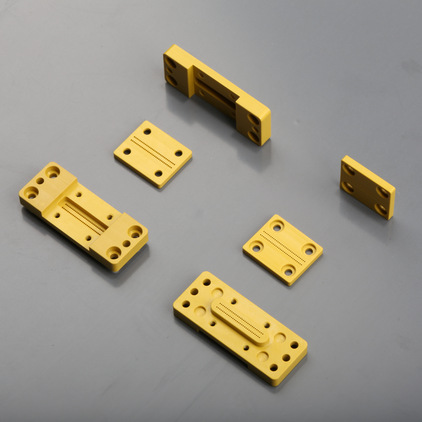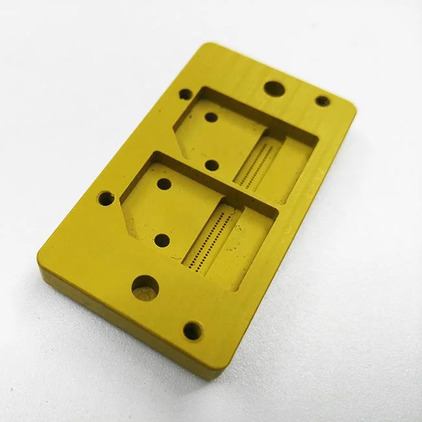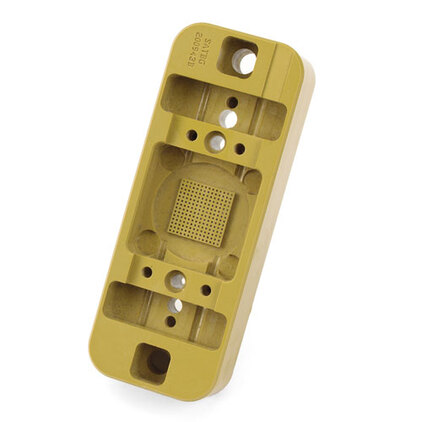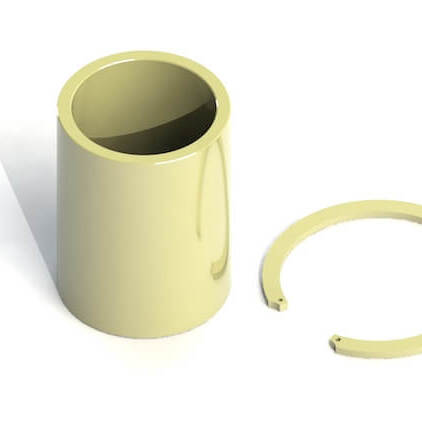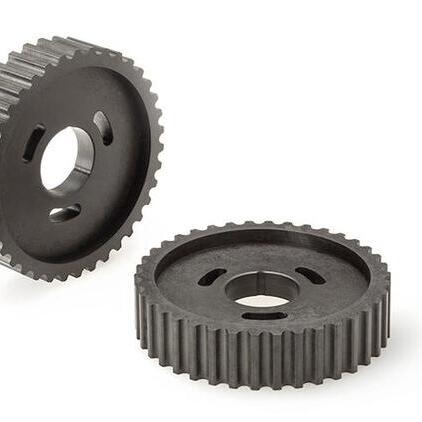PAI(Torlon) CNC Machining
PAI, or Torlon Polyamide-imide, is a type of thermoplastic polymer that is known for its excellent mechanical properties that it maintains over a wide range of temperatures.
- Certified Materials
- Factory Price
- No Minimum Order
- Fast Turnaround
Save 30% cost on average!

Premium CNC Solutions for Your PAI(Torlon) Parts
Searching for a dependable CNC machining partner?
Look no further than AT-Machining, a top provider of Plastic CNC machining services based in China.
Our impressive capacity of 50+ cutting-edge CNC machines allows us to handle 3, 4, and 5-axis milling and turning centers, resulting in superior CNC parts that meet your unique needs, no matter your industry.
Contact us today for top-tier PAI CNC machining solutions and a personalized quote!
Get precise and versatile machining of PAI parts with our optimized 3, 4, and 5-axis CNC milling service.
Combine lathe and milling capabilities for efficient CNC turning with live tooling, ideal for machining PAI parts with cylindrical features.
Enhance the surface finish of CNC machined PAI parts through additional finishing techniques like polishing or sandblasting.
About PAI
Polyamide-imide (PAI) is a high-performance thermoplastic polymer known for its excellent mechanical properties across a wide temperature range, and superb chemical resistance. It’s commonly used in industries that require robust and durable components, such as aerospace, automotive, and industrial sectors. This robustness makes it the material of choice for components used in harsh, high-stress conditions.
Some of the key properties of PAI include:

- High strength and stiffness up to 275°C (527°F).
- Excellent long-term strength and creep resistance.
- Extremely low coefficient of linear thermal expansion up to 275°C (527°F).
- Very stable dimensionally.
- Exceptional resistance to wear and friction.
- Resists wide chemical range including automotive fluids, hydrocarbons, and alcohols.
- High electrical insulating properties.
Most common grade of PAI
Typically, the most common PAI grade is unfilled, retaining inherent properties for excellent mechanical performance in demanding applications.
Torlon 4203, 4503, 4301, and 4501 are well-known grades of polyamide-imide (PAI) produced by Solvay Specialty Polymers under the brand name “Torlon”.
Due to its high toughness and impact resistance, Torlon 4203 might be used in electrical components or parts that require radiation resistance. It could be used in the manufacturing of insulators, seals, gaskets, pump and valve components, or other parts where good electrical properties and durability are required.
This 30% glass-reinforced grade, with its enhanced strength and stiffness, might be preferred for structural components subjected to load. For instance, it could be used in aerospace and automotive applications for parts that require strength, rigidity, and resistance to high temperatures.
Torlon 4301 Filled with PTFE and graphite components. Due to its exceptional wear resistance and lower coefficient of friction, Torlon 4301 would be suitable for applications involving moving parts. For example, it could be used to manufacture bearings, gears, or other parts in machines where friction and wear are concerns.
Similar to 4301, Torlon 4501 is designed to be wear-resistant with low friction. This makes it a good choice for creating components like seals, bushings, and bearings in high-performance industrial applications where durability and low friction are important.
Please note that these are general properties and the performance of these materials can vary based on a variety of factors including processing conditions and part design. Always refer to the material manufacturer or a materials specialist for detailed information and advice tailored to your specific application.
PAI Mechanical Properties Chart
Please note that the values below can vary depending on the specific grade and filler content of the PAI:
| Property | Tensile Strength | Flexural Strength | Compressive Strength | Flexural Modulus | Impact Strength (Notched Izod) | Hardness (Rockwell) | Thermal Conductivity |
|---|---|---|---|---|---|---|---|
| Unfilled PAI | 15,000 - 21,000 psi | 20,000 - 30,000 psi | 24,000 - 34,000 psi | 450,000 - 1,000,000 psi | 0.8 - 1.0 ft-lb/in | R108 - R120 | 1.7 - 10.5 (BTU/hr/ft2/in/°F) |
Please also note that all the numbers provided are approximate values and are given in the Imperial system. The exact properties can vary depending on the manufacturer, grade, and specific application of the material. It’s always advisable to check with the material supplier for the most accurate and current data.
CNC machining uses computer-controlled machines to perform a wide variety of manufacturing tasks with high precision and consistency. CNC machines can include lathes, mills, routers, and grinders, and the process can be used to create intricate and detailed components with high accuracy.
In the case of PAI, CNC machining is particularly useful due to the material’s strength and heat resistance. The process allows for the production of complex parts that need to withstand harsh conditions, such as in the automotive, aerospace, and industrial sectors. The accuracy and precision of CNC machining, combined with the excellent properties of PAI, can lead to high-performance components that meet stringent industry requirements.

Best Practice

Sam
The founder of AT-Machining has 30 years of CNC experience, dedicated to solving complex design and machining challenges for customers.
- Control Heat Accumulation During Cutting
PAI has low thermal conductivity; excessive heat causes dimensional drift and surface stress. Use sharp carbide tools, light passes, and air cooling instead of coolant. - Pre-Dry Material Before Machining
Moisture in Torlon can lead to internal stress and dimensional instability after cutting. Always pre-dry material at 250°F (≈120°C) for 4–6 hours before machining. - Stress-Relieve Between Roughing and Finishing
Rough-cut the part, then anneal at 200–260°C before final machining. This minimizes warping, cracking, and tolerance shift in precision components.
Benefit of PAI CNC machining
There are several benefits to CNC machining PAI
High Precision
CNC machining enables the fabrication of PAI parts with exceptional precision and accuracy, facilitating the creation of intricate designs and structures with stringent tolerances.
Consistency
CNC machining provides excellent consistency, even for large production runs, ensuring every part meets the design specifications.
Faster Turnaround
CNC machining is capable of swiftly and proficiently fabricating parts, potentially reducing the duration and expenses linked to conventional manufacturing techniques.
Flexibility
CNC machining can handle a wide variety of designs and complexities. This flexibility is beneficial when manufacturing customized parts.
Material Properties
PAI's excellent mechanical properties, heat resistance, and chemical resistance make it an excellent choice for parts that need to withstand harsh conditions, such as in the automotive, aerospace, and industrial sectors.
Cost-Effective
Although the initial setup cost for CNC machining can be high, the cost per part decreases for complex parts or larger production runs, making it cost-effective in the long run.
Gallery of CNC machined PAI parts
Our manufacturing capabilities serve diverse industries, including medical, aerospace, and marine robotics. We take on projects of any size and offer exceptional service to all customers
We are here to solve your problem and delivery your needs
CNC Machining PAI FAQs
Generally speaking, machining PAI tends to be more expensive than machining many other types of plastic due to a few key factors:
Material Cost: PAI is a high-performance thermoplastic with exceptional mechanical, thermal, and chemical resistant properties. This makes it more costly than many other commonly machined plastics like ABS, Nylon, or even PEEK.
Machining Difficulty: Due to its strength and heat resistance, PAI requires specialized tooling and slower machining speeds, which can increase machining costs.
Finish Requirements: If a specific surface finish or tolerance is required, additional machining or post-processing steps may be needed, adding to the cost.
Volume: As with most manufacturing processes, the cost per part typically decreases as the volume increases. However, the initial setup costs for machining PAI can be higher due to the factors listed above.
As a general guideline, AT-Machining can often achieve tolerances within the range of ±0.005″ to ±0.001″, depending on the specifics of the machining process and the part design.
It’s important to note that while PAI is a high-performance thermoplastic with excellent mechanical properties, it is still a plastic, and therefore may experience slight dimensional changes due to factors like temperature fluctuations and moisture absorption. These potential changes should be considered when determining the appropriate tolerances for a part.
Also, remember that achieving tighter tolerances can increase machining time and cost, so it’s important to specify only as tight of tolerances as necessary for the part to function correctly.
For the most accurate information, it’s advisable to consult with us, as we can provide guidance based on their specific machines and experience with machining PAI.
Cost: PAI is a high-performance polymer, and as such, it’s more expensive than many other types of plastics. This cost can be prohibitive for some applications.
Moisture Absorption: Although PAI has relatively low moisture absorption, it can still absorb small amounts of moisture from the environment, which could potentially affect its dimensional stability.
Limited UV Resistance: While PAI has good overall resistance to many environmental conditions, it has limited resistance to ultraviolet (UV) radiation. Over time, exposure to UV light can cause PAI to degrade.
Brittleness: Despite its high strength and stiffness, PAI can be relatively brittle compared to other polymers, which might make it prone to cracking under certain conditions.
Aerospace and Automotive Components: PAI’s exceptional heat and wear resistance make it suitable for parts like seals, bearings, bushings, and insulators in aerospace and automotive applications.
Electrical and Electronic Components: PAI’s electrical insulating properties make it a great choice for electronic components such as connectors, sockets, switches, and insulators.
Industrial Equipment: In industries that require equipment to withstand harsh conditions, PAI can be used for parts like gears, valves, pump components, and compressor parts.
Medical Devices: PAI’s resistance to sterilization processes makes it an ideal choice for certain medical devices and equipment.
Semiconductor Manufacturing Equipment: PAI is often used for parts in semiconductor manufacturing due to its excellent mechanical properties and resistance to various chemicals.
Food Processing Equipment: PAI’s resistance to high temperatures and various cleaning chemicals makes it suitable for components in food processing equipment.




